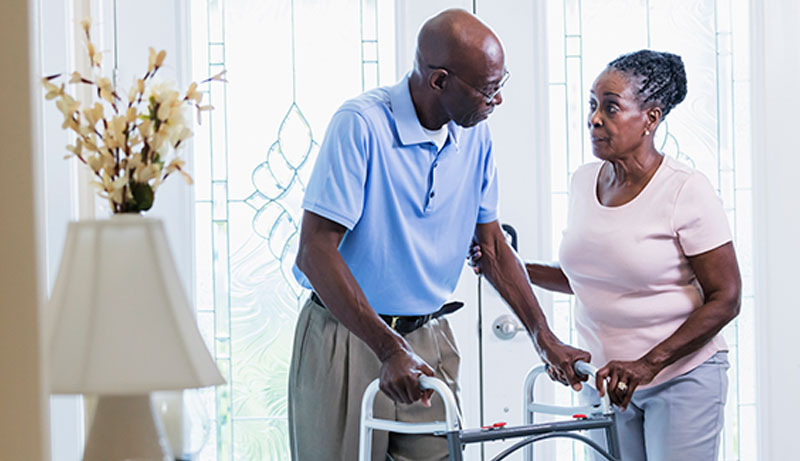
How can you best care for a loved one in the later stages of Parkinson’s disease?
A Parkinson’s disease diagnosis has an effect on relatives in addition to the person with the disease. Understanding what to anticipate as the condition progresses is paramount to being prepared for all of the changes in the future and also to making life the best it can be on a daily basis.
Over the last few months, we’ve published blog posts about what to expect in the early and middle stages of Parkinson’s disease. Information has included what family members can do to best assist an older adult with Parkinson’s and how Absolute Companion Care, experts in home care in Hunt Valley, MD and the surrounding communities, can help. In this final segment in the series, we provide care tips that can be utilized in the final stages of this disease.
Later Stage Parkinson’s
In the late stages of Parkinson’s disease, a substantial degree of assistance becomes necessary with normal activities of everyday living. By definition, the last stages of Parkinson’s are noted by the person’s inability to live at home independently. At first, standing and walking might still be possible, however with noticeable struggle, and as the illness continues to develop, the person will not be capable of getting out of bed or a chair without assistance.
In combination with a greater risk for falls, hallucinations and delusions can also be common. As a result, full-time, around-the-clock assistance is essential to ensure safety.
The Impact of Late Stage Parkinson’s on Family Caregivers
At this point, the stress and daily requirements of caregiving may take a toll on a family caregiver’s own health. It is very important for family care providers to reach out and accept assistance, to remain socially connected, and to make respite care a number one priority. It’s just not feasible for one individual exclusively to handle the around-the-clock care necessary for a person in late stage Parkinson’s.
Care Tips to Help with Late Stage Parkinson’s Care
With additional hands-on care needed, it is crucial for family caregivers to learn how to properly and effectively provide this help to decrease the possibility of harming either themselves or the person being taken care of.
If the individual with Parkinson’s is not currently receiving physical therapy services, check with the doctor for a referral. The physical therapist, while helping maximize the person’s ability level, can also advise family caregivers on the most useful methods for hands-on assistance.
One new symptom that frequently appears in the later stages of Parkinson’s is freezing, when the person is suddenly (but temporarily) unable to move. Ways to help break a freezing episode include:
- Using a laser pointer and asking the individual to step on the light
- Using a rhythmic sound, such as clapping, and motivating the individual to take a step with each clap
- Playing music and prompting the individual to walk to the beat
As usual, stay close by when the individual is mobile to prevent a fall.
Be sure to provide an abundance of extra time for day-to-day activities such as getting dressed and eating, which are likely to take more time now. This is important in maintaining the person’s self-sufficiency. Even if it takes longer to complete an activity, it’s always best to foster as much self-reliance as possible.
Emotional and mental health issues also may arise now, including depression, memory problems, anxiety, and dementia. These additional health conditions can be very challenging for a family care provider to deal with and should be brought to the attention of a loved one’s doctor.
Absolute Companion Care’s exceptional caregiving team is here to help you and your cherished loved one through each stage of Parkinson’s. Particularly in these final stages of the illness, having a care partner you can trust and rely on is crucial.
Call us at 410-357-9640 for a free in-home consultation to learn more about our in-home care in Hunt Valley, MD and the surrounding areas, and how we can ease the transitions through Parkinson’s for both you and your loved one.
